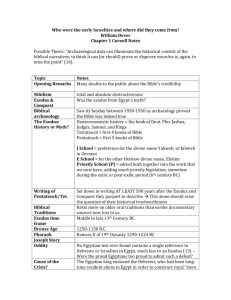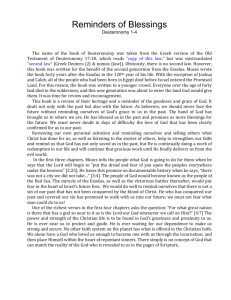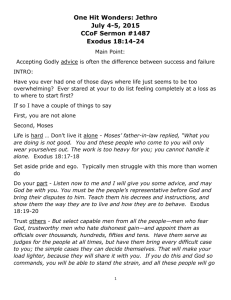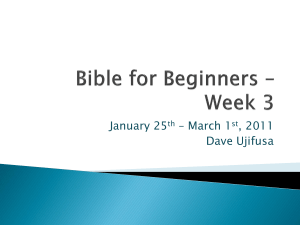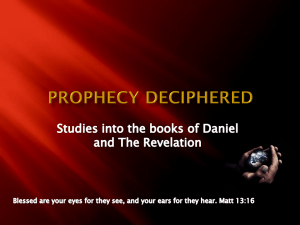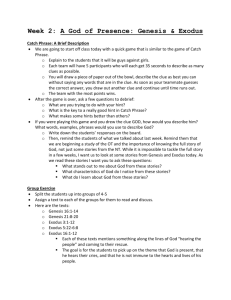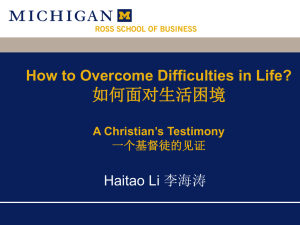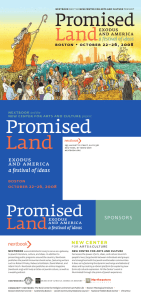exodus as a theme in american history and culture
advertisement
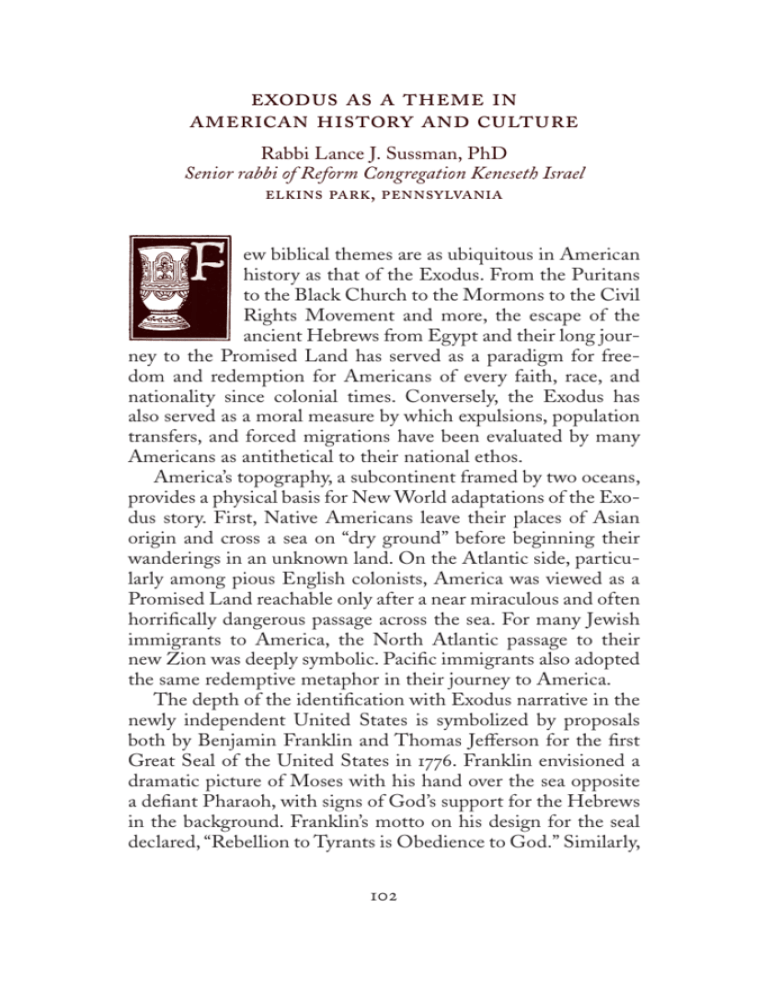
exodus as a theme in american history and culture Rabbi Lance J. Sussman, PhD Senior rabbi of Reform Congregation Keneseth Israel elkins park, pennsylvania ew biblical themes are as ubiquitous in American history as that of the Exodus. From the Puritans to the Black Church to the Mormons to the Civil Rights Movement and more, the escape of the ancient Hebrews from Egypt and their long journey to the Promised Land has served as a paradigm for freedom and redemption for Americans of every faith, race, and nationality since colonial times. Conversely, the Exodus has also served as a moral measure by which expulsions, population transfers, and forced migrations have been evaluated by many Americans as antithetical to their national ethos. America’s topography, a subcontinent framed by two oceans, provides a physical basis for New World adaptations of the Exodus story. First, Native Americans leave their places of Asian origin and cross a sea on “dry ground” before beginning their wanderings in an unknown land. On the Atlantic side, particularly among pious English colonists, America was viewed as a Promised Land reachable only after a near miraculous and often horrifically dangerous passage across the sea. For many Jewish immigrants to America, the North Atlantic passage to their new Zion was deeply symbolic. Pacific immigrants also adopted the same redemptive metaphor in their journey to America. The depth of the identification with Exodus narrative in the newly independent United States is symbolized by proposals both by Benjamin Franklin and Thomas JeVerson for the first Great Seal of the United States in 1776. Franklin envisioned a dramatic picture of Moses with his hand over the sea opposite a defiant Pharaoh, with signs of God’s support for the Hebrews in the background. Franklin’s motto on his design for the seal declared, “Rebellion to Tyrants is Obedience to God.” Similarly, JeVerson envisioned a picture of the Children of Israel being led through the wilderness by a pillar of fire. Remarkably, both Franklin and JeVerson were Deists whose personal philosophies maintained that God created the universe and then withdrew from it. However, American independence must have struck both of them as providential, thereby allowing them to embrace a God of history, at least for that moment. Nowhere in American history is the Exodus story more central than in the African-American experience. Already early in the history of the Black Church, the stories of Jesus and Moses were fused and the story of the Exodus was made inseparable from the passion of Christ. White abolitionists, too, seized upon the Exodus story for inspiration and proof of their cause, as did everyone involved in the Underground Railroad, from those “going through the sea” to those splitting the waters. Subsequently, internal migrations of American blacks such as the “Exodus of 1879” also specifically referenced the biblical story in name and spirit. In post–World War II America, Martin Luther King, Jr. was seen by his supporters as a kind of modern Moses who led his Exodus but, like his biblical predecessor, tragically did not make it to his Promised Land. Indeed, little in American history and culture was untouched by the story of the Exodus of the Hebrews through the Sinai. Images of Daniel Boone leading pioneers into the wilderness have a biblical feel about them. Internal explorers such as Lewis and Clark as well as John C. Fremont (accompanied by a Jewish artist and photographer, Solomon Nunes Carvalho) were perceived as American incarnations of Moses’s famed scouts. More explicitly, the prophetic career of the founder of the Mormon Church and the dramatic journey of the members of the Church of Latter Day Saints is perfectly synchronized with the biblical Exodus. Popular culture in the United States is also infused with Exodus themes. Best known is the 1956 classic film, The Ten Commandments. Four years later, the dramatic story of modern Israel’s birth, complete with emotionally compelling music, was captured in the film Exodus. With its explicit biblical themes, the movie played a significant role in deepening support for the Jewish state in the United States. More recently, the animated 1998 film The Prince of Egypt helped introduce the Exodus theme to millions of young and largely secular Americans. The biblical story of the Exodus also casts a moral shadow across darker episodes in American history. The “Trail of Tears” removal of Native people under President Jackson, the shortlived 1862 expulsion of American Jews by General Grant from areas under his command in the South, and the internment of Japanese-Americans during World War II all have qualities of being an anti-Exodus unworthy of either the biblical Exodus or the American promise of freedom. Increasingly problematic among American Jews was the American failure to lead a redemptive Exodus of Jews from Europe during the final years of the Holocaust. For American Jews, the Passover story found its most dramatic expression in the Soviet Jewry movement. “Let my people go” found a new meaning among American Jews as they worked for the exodus of Jews from the Soviet Union. Beginning in 1964, American Jews increasingly rallied in support of “refuseniks” and prospective Russian Jewish immigrants, culminating in the 1987 March on Washington, DC, which attracted 250,000 supporters, the largest gathering in the history of the American Jewish community. In the final analysis, for most American Jews the Haggadah combines the American belief in freedom with Judaism’s ancient hope for redemption. The story of our ancestors’ flight from Egypt becomes one with our own ancestors’ decision to leave Germany, Poland, and Russia and come to the American Promised Land. It has also served as the foundation of our communal ethos that so often equates deliverance in our own time with social justice and Jewish activism. Lastly, for American Reform Jews, the inherent Zionism of the traditional call for a return to Jerusalem is no longer viewed in terms of a potential conflict of dueling nationalities but as a uniquely comfortable synthesis of the deepest universal and particular aspects of our ever redemptive Jewish tradition. Indeed, for most American Jews it remains existentially possible to see ourselves as if we personally had gone forth from Egypt over and over again!
